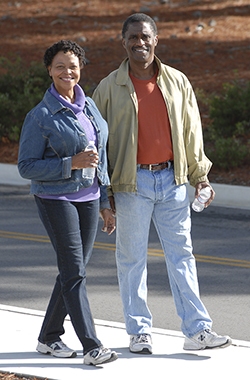A
B
C
D
E
F
G
H
I
J
K
L
M
N
O
P
Q
R
S
T
U
V
W
X
Y
Z
Click a letter to see a list of medical procedures beginning with that letter.
Click 'Back to Intro' to return to the beginning of this section.
After Hernia Surgery
You can often go home the same day as surgery. If you had surgery to fix a ventral or incisional hernia, you may need to stay in the hospital overnight. To speed healing, take an active role in your recovery. These tips can help.
Reducing swelling
Early on, the area around your incision may be swollen, bruised, and sore. To reduce swelling, apply an ice pack to the area 3 to 5 times a day. Keep it there for 15 to 20 minutes at a time. To make an ice pack, put ice cubes in a plastic bag that seals at the top. Wrap the bag in a thin towel or cloth before using it. Don’t put ice or an ice pack directly on the skin.
Managing pain
Take any prescribed pain medicines as told. Some pain medicines can cause constipation. So your healthcare provider may also tell you to take a laxative or stool softener. A bowel regimen is important because it keeps you from straining after your hernia repair. Placing a pillow over your incision if coughing or sneezing can decrease pain too.
Returning to normal
You can get back to your normal routine as soon as you feel able, unless your healthcare provider gives you other instructions. Just take it easy and stick to these guidelines:
-
Take short walks to improve circulation.
-
Don't do any heavy lifting for at least 2 weeks and possibly longer, depending on your repair.
-
Stay out of baths, hot tubs, and swimming pools for at least 1 week to protect your incisions. You can likely take a shower sooner than that.
-
Ask your provider when you can drive and go back to work.
-
You can have sex again when you feel ready.

Follow-up care
Be sure to keep all follow-up visits with your healthcare provider. These make sure you’re healing well. During visits, your stitches, staples, or bandage may be removed.
When to call your healthcare provider
Call your healthcare provider if you have any of these:
-
A large amount of swelling or bruising (some testicular swelling and bruising is normal)
-
Fever of 100.4°F (38°C) or higher, or as advised by your provider
-
Chills
-
Pain, redness, bleeding, or fluid from the incision that gets worse
-
Trouble peeing
-
Constipation
-
Vomiting
Online Medical Reviewer:
Jen Lehrer MD
Online Medical Reviewer:
Raymond Kent Turley BSN MSN RN
Online Medical Reviewer:
Rita Sather RN
Date Last Reviewed:
4/1/2022
© 2000-2024 The StayWell Company, LLC. All rights reserved. This information is not intended as a substitute for professional medical care. Always follow your healthcare professional's instructions.